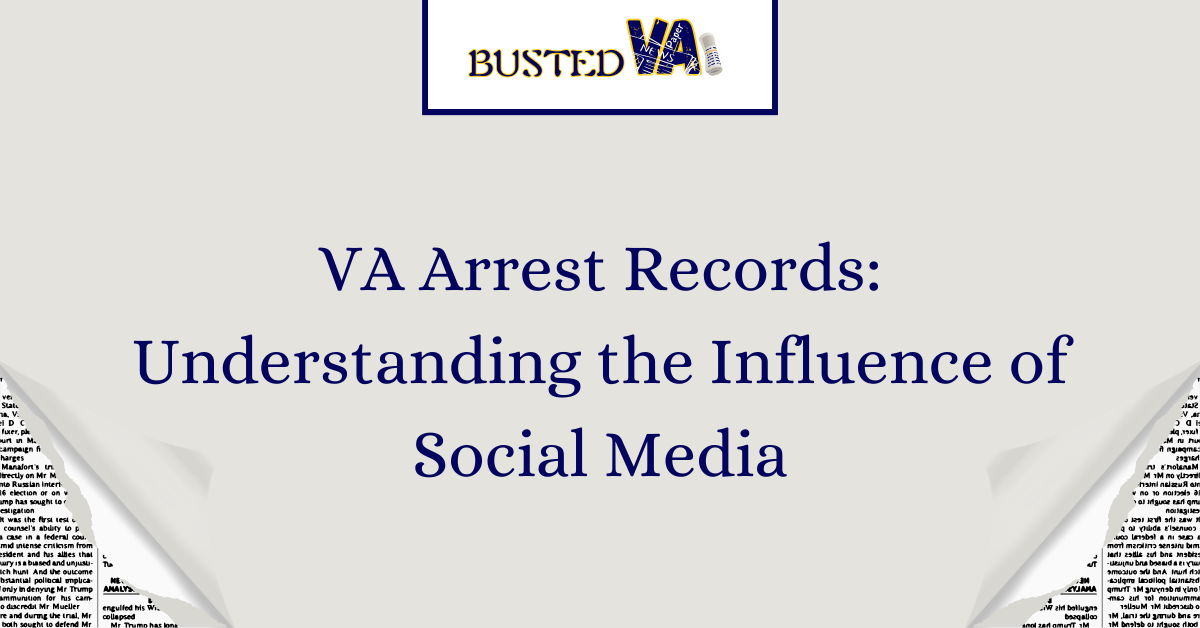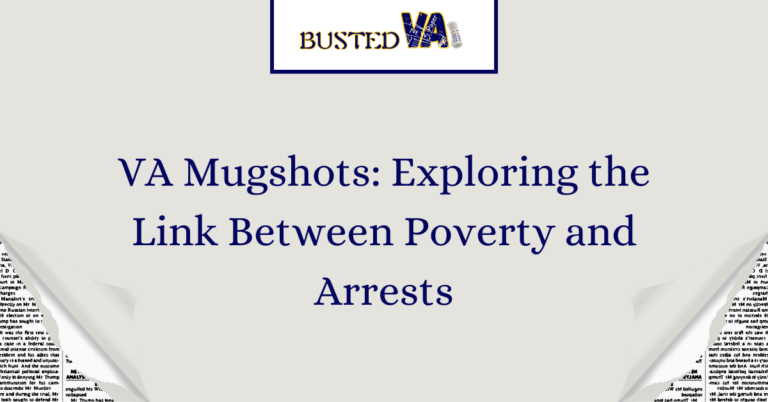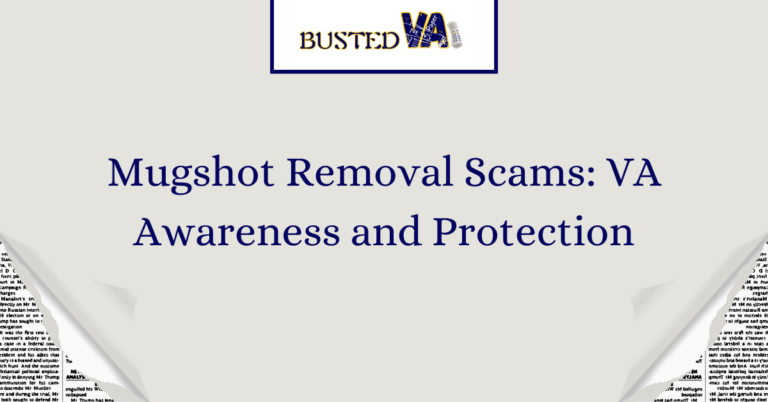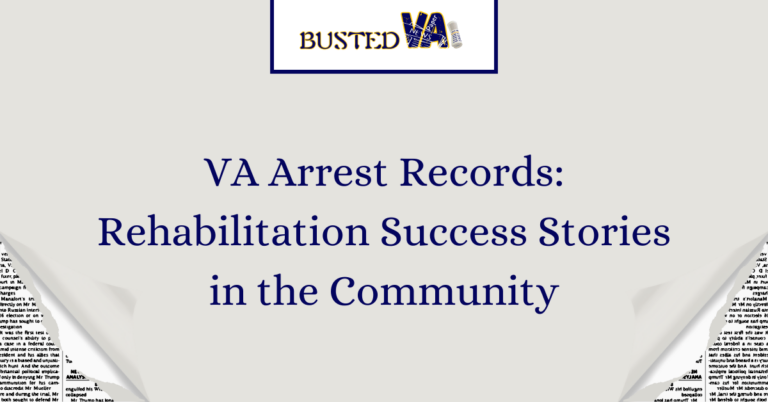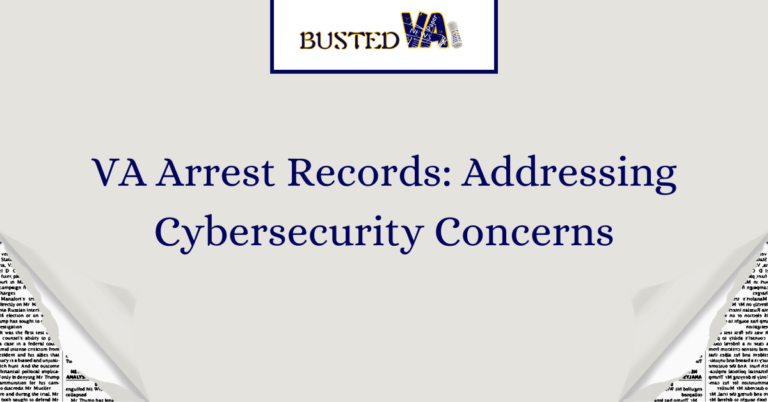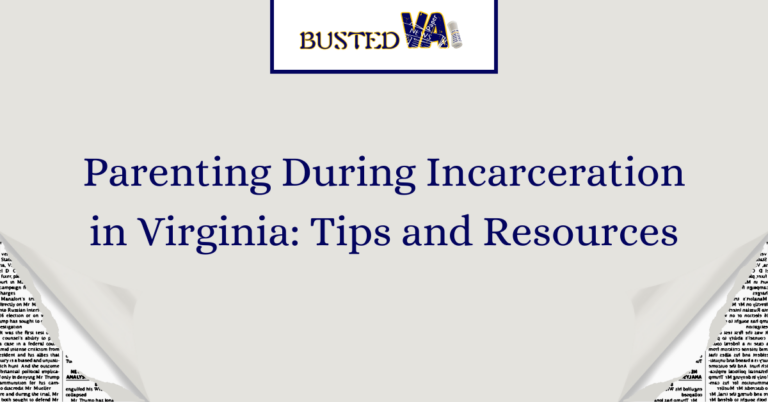VA Arrest Records: Understanding the Influence of Social Media
Social media has become an undeniable force in today’s society, impacting every aspect of our lives, including the criminal justice system. In recent years, the influence of social media on the way we understand and access information has grown exponentially. One area where this influence is particularly notable is in the realm of arrest records.
VA Arrest Records: Understanding the Influence of Social Media dives deep into the intersection of social media and arrest records, shedding light on the ways in which these two seemingly unrelated entities are intertwined. By exploring the various ways in which social media platforms have revolutionized the way we share and consume information, this informative piece aims to provide readers with a comprehensive understanding of the impact social media has on our perception of arrest records in Virginia.
The Evolution of Arrest Records in the Digital Age
With the proliferation of social media platforms, our understanding of arrest records has undergone a profound transformation. Gone are the days when accessing such information required a visit to the local courthouse or police station. Today, the power to uncover arrest records lies at our fingertips, thanks to the advent of social media.
Social media platforms have not only made access to arrest records easier but have also revolutionized the way we share and consume this information. In the past, arrest records were often limited to official channels, making it difficult for the general public to stay informed. However, with the rise of social media, arrest records now have the potential to reach a much wider audience, transforming the way we perceive and understand these records.
The Influence of Social Media on Public Perception
Social media has undeniably altered the public perception of arrest records. In the past, these records were often stigmatized, with individuals facing judgement and discrimination based on their past encounters with the criminal justice system. However, with the widespread availability of arrest records on social media platforms, the public perception has shifted.
Now, rather than relying solely on official channels, individuals can access arrest records through their social media feeds. This increased accessibility has led to a normalization of arrest records, with the public becoming more accepting and understanding of individuals who have encountered legal issues in the past.
The Power of Sharing: Social Media’s Influence on Arrest Records
One of the key ways in which social media has impacted the realm of arrest records is through the power of sharing. In the past, news of an arrest would often be confined to a local community. However, with the ability to share information instantly and globally, social media has transformed the way we spread news about arrests.
Arrest records that would have otherwise remained confined to a small circle of individuals can now be shared exponentially, reaching thousands or even millions of people within a matter of minutes. This widespread sharing has implications not only for the individuals involved but also for the criminal justice system as a whole, as it brings increased scrutiny and accountability to the process of arrest and prosecution.
Privacy Concerns in the Age of Social Media
While the increased accessibility and sharing of arrest records through social media have undoubtedly brought about positive changes, they have also raised concerns regarding privacy. With personal information readily available, individuals may face challenges in rebuilding their lives after encountering legal issues.
Furthermore, the potential for false or misleading information to circulate on social media platforms can have severe consequences for individuals’ reputations and future prospects. It is essential, therefore, to strike a balance between the public’s right to access information and the need to protect individuals’ privacy and ensure the accuracy of the information shared.
The Future of Arrest Records in the Social Media Era
As social media continues to evolve and shape our lives, it is clear that the influence of these platforms on arrest records will only continue to grow. With new challenges and opportunities arising every day, it is crucial for society to navigate this intersection thoughtfully. By understanding the impact of social media on our perception of arrest records, we can work towards a more equitable and informed criminal justice system.
FAQs
What is the impact of social media on the criminal justice system?
Social media has significantly impacted the criminal justice system, influencing various aspects of law enforcement, investigations, and legal proceedings. One notable impact is the speed at which information spreads, affecting public perception and potentially influencing cases. The viral nature of social media can contribute to the rapid dissemination of information, both accurate and misleading, influencing public opinion and creating challenges for the judicial process.
How does social media provide unprecedented access to information for law enforcement?
Social media provides law enforcement with unprecedented access to information crucial for investigations. Platforms like Facebook, Twitter, and Instagram can offer insights into individuals’ activities, relationships, and even potential criminal behavior. Law enforcement agencies use these platforms to gather intelligence, monitor activities, and identify potential threats. Additionally, social media can serve as a valuable tool for community policing, enabling law enforcement to engage with the public and address concerns more directly.
How do social media platforms help in identifying and tracking suspects?
Social media platforms play a crucial role in identifying and tracking suspects. Law enforcement agencies use online platforms to gather information about individuals involved in criminal activities, including their whereabouts, connections, and potential motives. Facial recognition technology, combined with publicly available information on social media, can aid in identifying and locating suspects. This information is then utilized to build cases and apprehend individuals involved in criminal activities.
How does social media enable real-time crime reporting?
Social media enables real-time crime reporting, allowing individuals to share information and alert the community about ongoing incidents. Platforms like Twitter serve as effective tools for disseminating urgent information, such as descriptions of suspects or details about a crime in progress. This immediate dissemination of information enhances public safety and can facilitate a faster response from law enforcement, potentially preventing further criminal activity.

